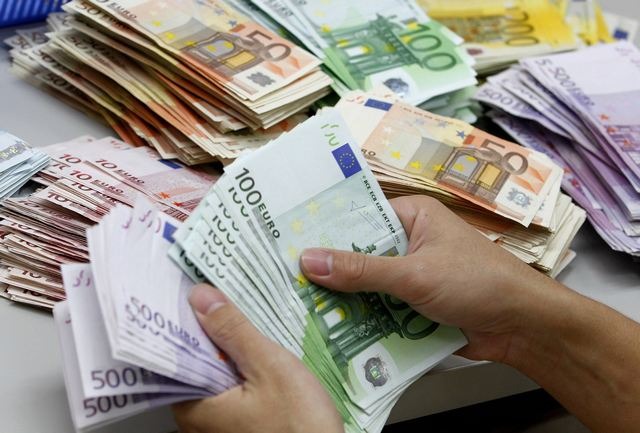
An end to cash transactions of more than 500 euros is being attempted by the government’s financial staff in an effort to crack down on tax evasion.
With the new tax bill from the beginning of 2024, comes the complete ban on the use of cash in transactions over 500 euros.
Under the new provision, those who accept cash payments above this limit will be fined up to double the transaction. In other words, if businesses or professionals accept 2,000 euros in cash from a customer, they will lose 4,000 euros!
The increase in the fine for using cash in transactions over 500 euros, to twice the amount of the transaction, was deemed necessary because the 100 euro fine did not deter many from preferring to pay in cash.
At the same time, from the spring of 2024, cash will be replaced by “POS everywhere”. For every card payment, a receipt will automatically “ring” at the store’s cash register, as well as a “bell” at the Independent Public Revenue Authority-AADE of what and how it was paid by card.
According to the Bank of Greece, card payments in Greece (especially after the capital controls of 2015 and the 2020 pandemic) continue to make great progress: the average value per card transaction has fallen well below 50 euros (to 46 euros in the first half of 2023, from 48 euros in the second half of 2022 and over 50 in 2021).
BoG Gov Stournaras on tax evasion
The Governor of the Bank of Greece, Yannis Stournaras, in his speech on the topic: “Fiscal developments – Combating Tax Evasion” at the 19th Tax Forum, at the Atheneum Intercontinental Hotel, emphasized that “the fight against tax evasion and a fairer distribution of tax burdens should receive priority”.
Mr. Stournaras presented a series of policy proposals aimed at addressing the problem in order to ensure the overperformance of tax revenues including the further expansion of electronic transactions by extending the use of portable transaction machines (POS) to more economic activities.
Latest News

Airbnb Greece – Initial CoS Ruling Deems Tax Circular Unlawful
The case reached the Council of State following annulment applications filed by the Panhellenic Federation of Property Owners (POMIDA)

Mitsotakis Unveils €1 Billion Plan for Housing, Pensioners, Public investments
Greek Prime Minister Kyriakos Mitsotakis has announced a new set of economic support measures, worth 1 billion euros, aiming to provide financial relief to citizens.

Alter Ego Ventures Invests in Pioneering Gaming Company ‘Couch Heroes’
Alter Ego Ventures' participation in the share capital of Couch Heroes marks yet another investment by the Alter Ego Media Group in innovative companies with a focus on technology.

Corruption Still Plagues Greece’s Driving Tests
While traffic accidents continue to claim lives on Greek roads daily, irregularities and under-the-table dealings in the training and testing of new drivers remain disturbingly widespread

Pope Francis Died of Stroke and Heart Failure Vatican Confirms
As news of the official cause of death spread, tributes poured in from across the globe. The 1.4 billion-member Catholic Church is united in grief, remembering a pope who championed inclusion, justice, and compassion

Increase in Both Museum Visits, Revenues for 2024
As expected, the Acropolis was the top archeological site in the country, followed by Sounion, Mycenae, the ancient theater of Epidaurus, and Vergina in northern Greece

Where Greece’s Tourists Come From: A Look at 2025’s Top Visitor Markets
The United Kingdom continues to hold the top spot as the largest source of incoming tourism, with 5.6 million seats booked for Greece this summer — up 2.2% from last year. This accounts for 20% of all international air traffic to Greece

Pope Francis: A Pontiff Who Reshaped the Papacy and Sparked a Global Conversation
His first words from the balcony of St. Peter’s Basilica—“Brothers and sisters, good evening”—set the tone for a pontificate that would challenge norms, favor mercy over dogma, and bring the papacy closer to the people.

When Blue Skies was Unmasked as ND’s Political ‘Slush Fund’
The fact that so many top New Democracy (ND) party cadres were paid by the firm Blue Skies, owned by Thomas Varvitsiotis and Yiannis Olympios, without ever citing this publicly, raises very serious moral issues, regardless of the legality

Greek Women’s Water Polo Team Top in the World after 13-9 Win Over Hungary
The Greek team had previously defeated another tournament favorite, the Netherlands, to reach the final.











![Πλημμύρες: Σημειώθηκαν σε επίπεδα ρεκόρ στην Ευρώπη το 2024 [γράφημα]](https://www.ot.gr/wp-content/uploads/2025/04/FLOOD_HUNGRY-90x90.jpg)




![Ξενοδοχεία: Μεγάλο το ενδιαφέρον για επενδύσεις στην Ελλάδα – Η θέση της Αθήνας [γραφήματα]](https://www.ot.gr/wp-content/uploads/2025/03/Athens-hotels-90x90.jpg)
























 Αριθμός Πιστοποίησης
Αριθμός Πιστοποίησης